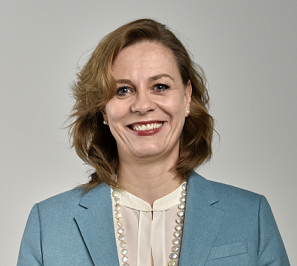At the end of 2012, CERN became an Observer to the United Nations General Assembly. This was an important move designed to allow CERN to offer the General Assembly and the United Nations family the benefit of its scientific expertise with a view to promoting the essential role of basic science for peace and development.
In September 2015, the UN adopted the 2030 agenda for sustainable development, based around a set of 17 Sustainable Development Goals – the SDGs. They represent the most comprehensive set of shared goals that the international community has ever set for itself, and will serve as the overarching roadmap for the entire international system for the coming decades.
The SDGs are ambitious; the UN’s goals have always been so, and history shows that that ambition has paid off. Over the decades, the UN development goals have kept a range of critical challenges in the spotlight, and they have made a real difference to millions of people’s lives. To cite just one example, over the timeframe of the last cycle (2000-2015), the Millennium Development Goals, the percentage of people in developing regions surviving on under $1.25 per day fell from 50% to 14% – a fantastic accomplishment, though there’s still much to be done.
So what are the SDGs, and what have they got to do with CERN? There’s no short answer to the first of those questions; within the 17 SDGs, which range from eliminating poverty and hunger to promoting peace and justice through strong institutions, there are some 169 targets to be achieved, all of them described in detail on the UN website. The second question is easy: CERN is already engaged in support of the SDGs.
Just by carrying out our core mission, CERN contributes globally to five of the 17 SDGs. Goal number three aims to ensure health and well-being. This is an area that particle acceleration and detection technologies have been contributing to for decades through applications such as medical scanners and accelerators for hadron therapy. Goal four is about universal access to education, a mission very close to our hearts at CERN. We run educational programmes, formal and informal, for students and educators from around the world, and we inspire new generations to take up careers in STEM subjects through our guided visits. Goal nine promotes innovation, which we cover with our knowledge transfer activities and the growing number of business incubation centres, the CERN BICs, in our Member States. Goal 16 seeks to promote peaceful and inclusive societies, which is not only in our DNA at CERN, but also in our governing convention. Finally, goal 17 aims to strengthen the means of implementation of the preceding 16 goals by revitalising the global partnership for sustainable development. Here, we could be a template: CERN is a model for global cooperation in science, which continues to inspire and provide practical guidance in different areas of science and in other regions.
The SDGs can also be seen as a positive driver to set internal goals in the everyday life of countries or international organisations, with clear targets on gender (goal five), water management (goal six), sustainable energy (goal seven) or land protection (goal 15), to mention just a few.
With over 30 international organisations, some 400 non-governmental organisations and more than 250 permanent missions and delegations, International Geneva is the operational centre of the international system, and therefore has a particularly important role to play in the implementation of the SDGs. New ways of working together are being found to enable this reservoir of know-how and practical experience to take forward the SDGs. And CERN is working with many partners – both organisations with which we have enjoyed a long-standing cooperation and new entities such as the SDG Lab – to enable our expertise to serve this global agenda.
Later this year, many of these organisations will come together to show how International Geneva contributes to the SDGs, and you’ll have a chance to learn more about the SDGs and how CERN contributes to them. On 7 October, the Palais des Nations will open its doors to the world for the UN Geneva Office’s 2017 Open Day, and CERN will be there. Do come along with family and friends. It promises to be a fascinating day with much to do and learn. Better still, volunteer to help staff the CERN stand, and take CERN’s messages about the importance of basic science and education to the world.

